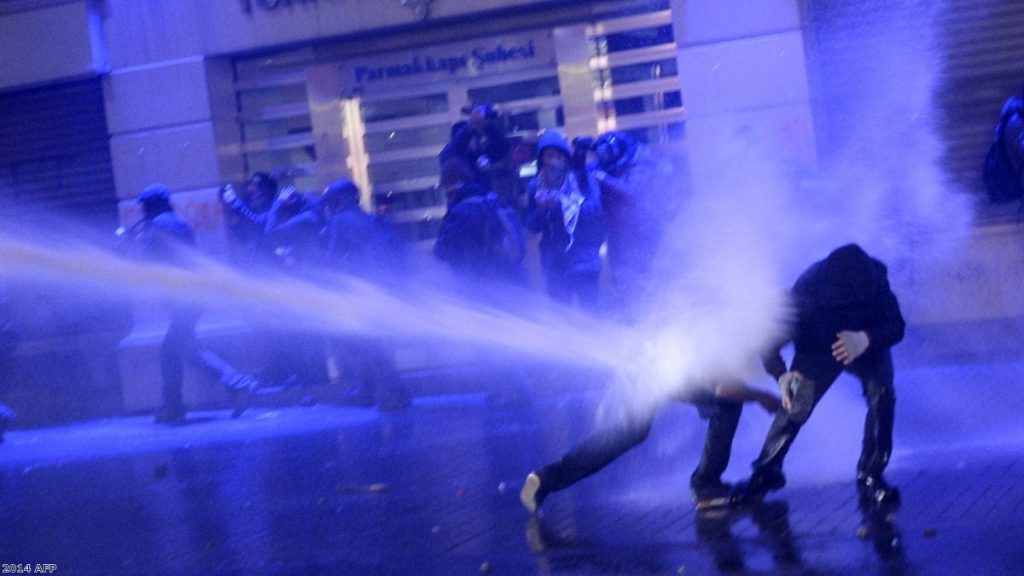Water cannon a ‘creeping infringement’ on right to protest
There is "no convincing argument" for using water cannon against the public, the Metropolitan Police were warned today.
The mayor of London Boris Johnson has called for the deployment of water cannon in London, saying that it is time to get "medieval" on rioters.
He believes the police need to "come down much harder" in order to prevent riots like those seen in London in 2011.
However, a cross-party report by the London Assembly today found that the police and mayor of London have failed to make a case for deploying water cannon and warned the weapons could infringe on our right to protest.


"There is no convincing argument for the Mayor’s decision to fund water cannon for the Met for deployment by this summer," the chair of the Assembly's police and crime pane, Joanne McCartney said.
"Professional police officers often press for additional powers and equipment; it is the responsibility of politicians to ensure these are really necessary for the protection of the public, not a creeping infringement of our rights," McCartney added.
The committee accused the mayor of "preventing a full and proper national public debate" on the issue.
They cite statements from senior police officers that water cannon would have been of "limited use" during the London riots.
The case for water cannon was damaged earlier this month, after a German pensioner blinded by water cannon, turned up at a police consultation meeting on the weapons in London.
Dietrich Wagner suffered devastating damage to his eyes during a protest in Stuttgart in 2010.
The water cannon jet knocked him unconscious and left him almost completely blind.
"I couldn't open my eyes," he told the Independent. "I only saw black."
He warned Britain against adopting the weapons, so far only seen in use in Northern Ireland.
"Water cannons are not democratic. They are instruments of violence. They are considered much more harmless than they actually are.
"My message is Britain shouldn’t make the same mistake as other countries around the world."
Boris Johnson has previously been opposed to the introduction of water cannon, saying in 2010 that he did not want to get into an "arms race" with protesters.
However, he has since changed his mind, saying that it was "very difficult as policy makers to say no" when the police asked him for them.
Last month he compared water cannon to nuclear weapons, claiming that while they would be "very, very rarely used if ever" it was important they should be in the police's arsenal.
He also suggested that the mayor would have a veto over their use.
This claim was undermined by police commanders who insist they would retain ultimate operational control.
A recent report by the Association of Chief Police said that water cannon would have been useful on three occasions in the past ten years.
They highlighted the London riots in 2011, the student riots at Millbank in 2010 and the Countryside Alliance protests in 2004.












